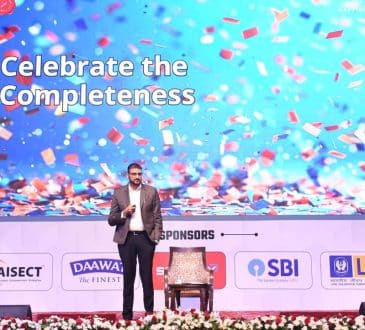Is Having Great Skills Good Enough?

In the late 1990s, I founded a public relations firm. During that time, in the city where I was based, all the PR firms were divisions of advertising agencies. So, one of the ways I set myself apart from my competitors was to offer resources and capabilities that the ad agency divisions did not, mainly because PR was not their core business.
When our team pitched prospective clients, you had a choice between the apple (full-service ad agency) or the orange (a stand-alone PR firm with the resources to meet your toughest PR challenges). Depending on the client’s needs, the decision was easy for all involved. Of course, we had to back up the claim that our PR offering was better and more comprehensive. Here’s one example of how we did it.
Media Training
You’re probably thinking, “Media training? “Just about any agency offering PR services provides media training in one form or another.” There are also media training companies that focus specifically on providing this service. After seeing what the local marketplace offered at that time, all of these programs were focused primarily on helping clients build on-camera communication skills for television interviews.
To me, this felt like teaching someone to play basketball by getting them out on the court and showing them how to shoot, dribble, and pass. Imagine teaching someone those skills and then putting them into an actual game. They wouldn’t stand a chance. They may have acquired and mastered specific skills but still needed help understanding the game and its associated pressures.
We created a media training program that taught clients the skills and helped them understand the game. I approached the largest CBS affiliate in our market to help them address one of their biggest challenges – convincing community leaders in every sector to agree to television interviews. The idea of being on camera and answering a reporter’s questions was terrifying to so many of these people, and of course, the last thing they wanted to do was misspeak on camera in a way that damaged their credibility or that of their organization.
We convinced the station that if we could demystify the television news business and help clients understand the game better, they would be more likely to believe they could present their position successfully in on-camera interviews. Doing so is often in the client’s best interest as well. For example, if a TV station wants to run a 90-second story on something negative the company is alleged to have done, you can either communicate your point of view or damage your reputation further by not participating at all. We believed that collaborating on this project would be a win-win-win for the TV station, our agency and clients, and the community-at-large.
How We Helped Clients Understand the Game
We conducted on-camera interviews with the news director, the assignment editors, anchors, reporters, and videographers. They talked about why they chose their craft, their specific jobs, what they are looking for as storytellers, and they offered advice about what NOT to do when engaging with a TV station. We then shot a video of the morning meeting, where reporters were assigned stories, and we followed them throughout the day as they identified sources, conducted interviews, edited news packages, and delivered the finished pieces on the 6:00 PM news.
Clients loved it. It was different than anything available on the market at the time, and it helped them better understand the environment in which they could test their skills – which we taught them also. In Chris Komisarjevky’s book, The Power of Reputation, he tells an engaging story about preparing a client for a 60 Minutes interview. The agency recreated what an actual 60 Minutes experience would look and feel like. This dress rehearsal provided some crucial lessons, which the client didn’t necessarily appreciate in the moment, but without it, no matter what skills the client may have believed he had, those skills alone wouldn’t have been enough without having had the mock experience the agency orchestrated.
What All This Means for CEOs and Their Teams
Employees who possess excellent skills and serve their departments well will produce good results, but not great ones. The silos that are endemic to so many organizations keep employees in their comfort zone, don’t allow for synergies, and can create conflict among departments because while the employees have the skills (their own), they lack the basic understanding of what their colleagues from other departments do every day. As a result, even if they were inclined to help each other, they don’t know how. CEOs can play a significant role in assuring that their employees have the skills, comprehend the game, and understand one another.
Summary
Today’s workplace should be a beacon of hope and purpose. In a deeply divided world, it’s where people come together to collaborate in a manner that, in some small way, makes the world a better place. Having the skills is not good enough anymore. Create the environment that inspires people to explore beyond their departments and discover how they can contribute more meaningfully to something larger than themselves. That’s the name of the game.
Have you read?
World’s Best Countries To Invest In Or Do Business.
World’s Most Startup-Friendly Countries.
World’s Best Countries For Quality of Life.
Largest Economies Europe In 2024.
GDP of the BRICS countries (2000 to 2028).
Bring the best of the CEOWORLD magazine's global journalism to audiences in the United States and around the world. - Add CEOWORLD magazine to your Google News feed.
Follow CEOWORLD magazine headlines on: Google News, LinkedIn, Twitter, and Facebook.
Copyright 2025 The CEOWORLD magazine. All rights reserved. This material (and any extract from it) must not be copied, redistributed or placed on any website, without CEOWORLD magazine' prior written consent. For media queries, please contact: info@ceoworld.biz








